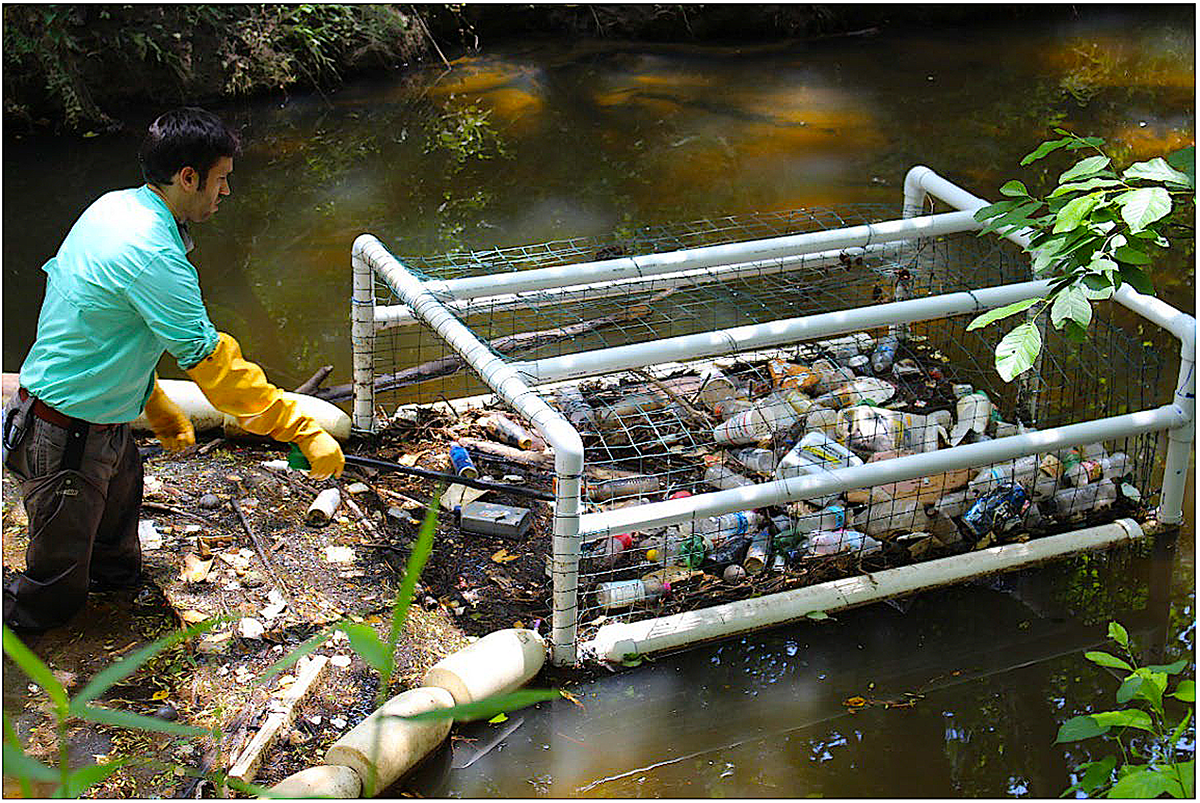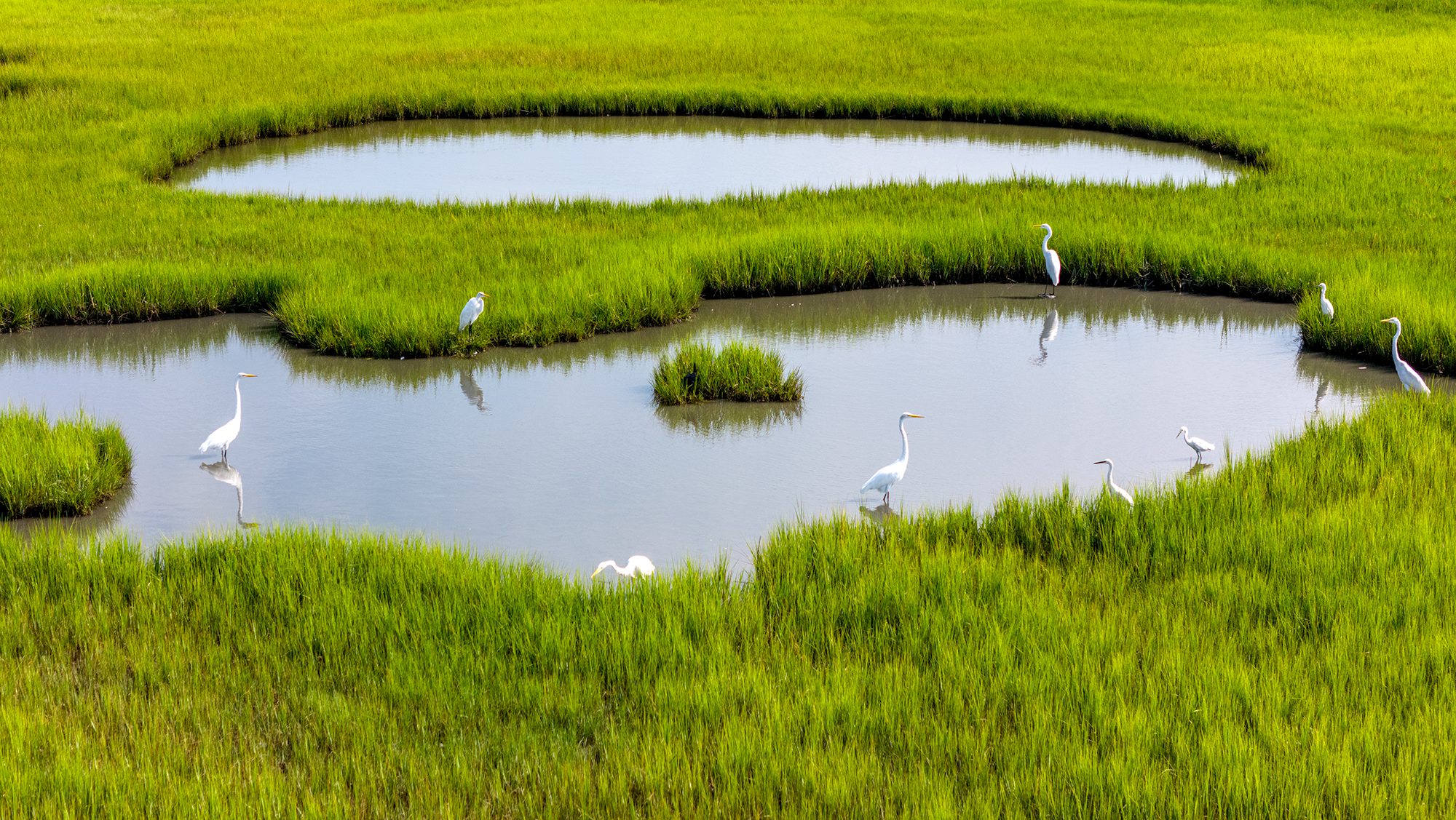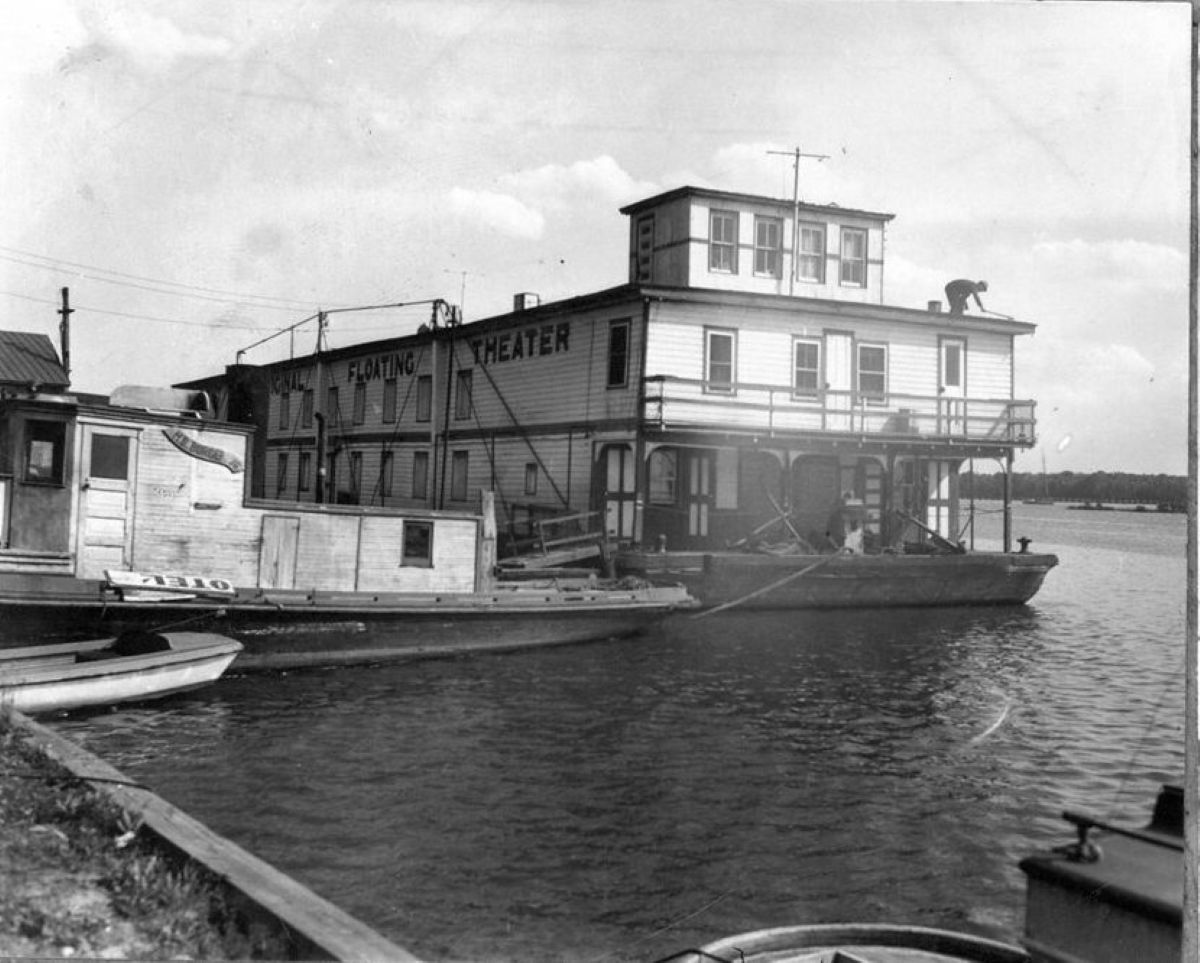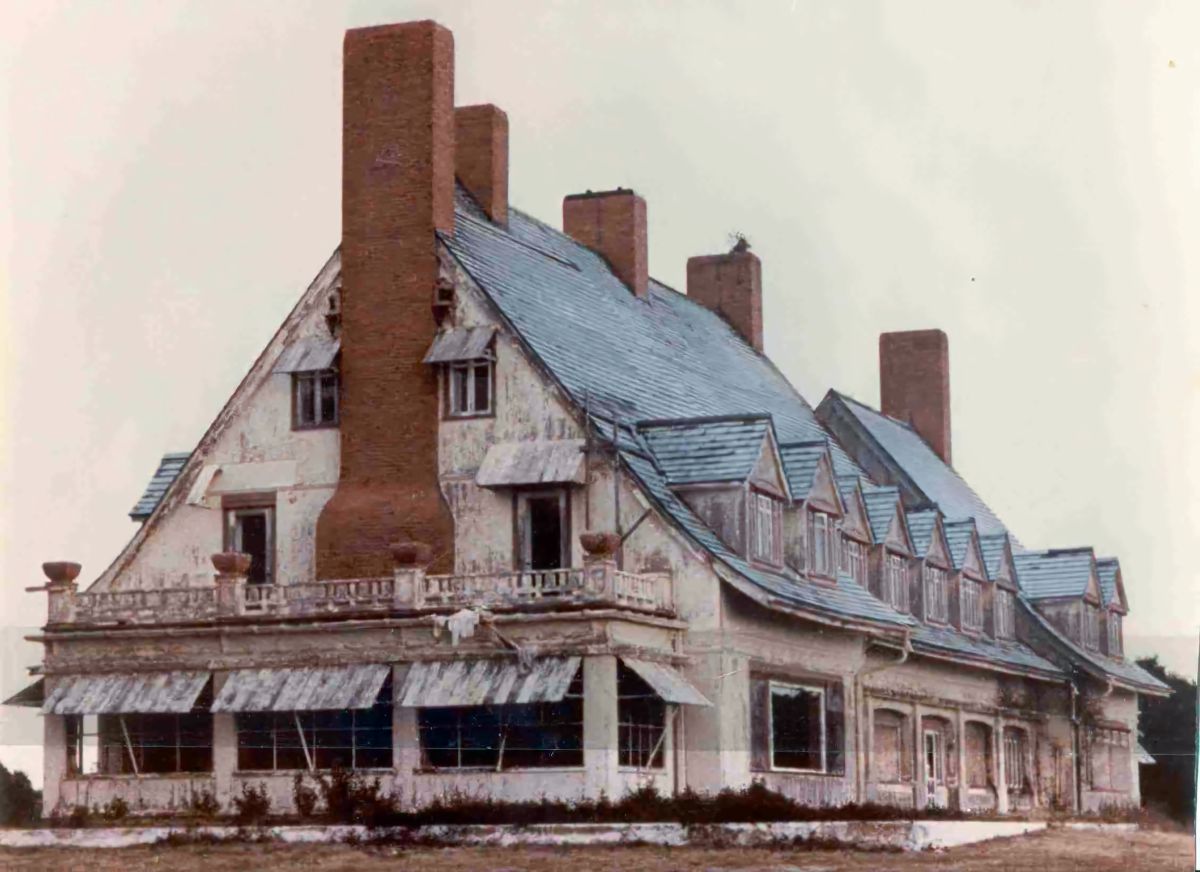-
Vast majority of litter removed from streams is plastic: Study
A three-year study recently published in the journal Community Science finds that about 96% of litter North Carolina waterkeeper organizations and their volunteers removed from trash traps were plastics.
Spotlight
-
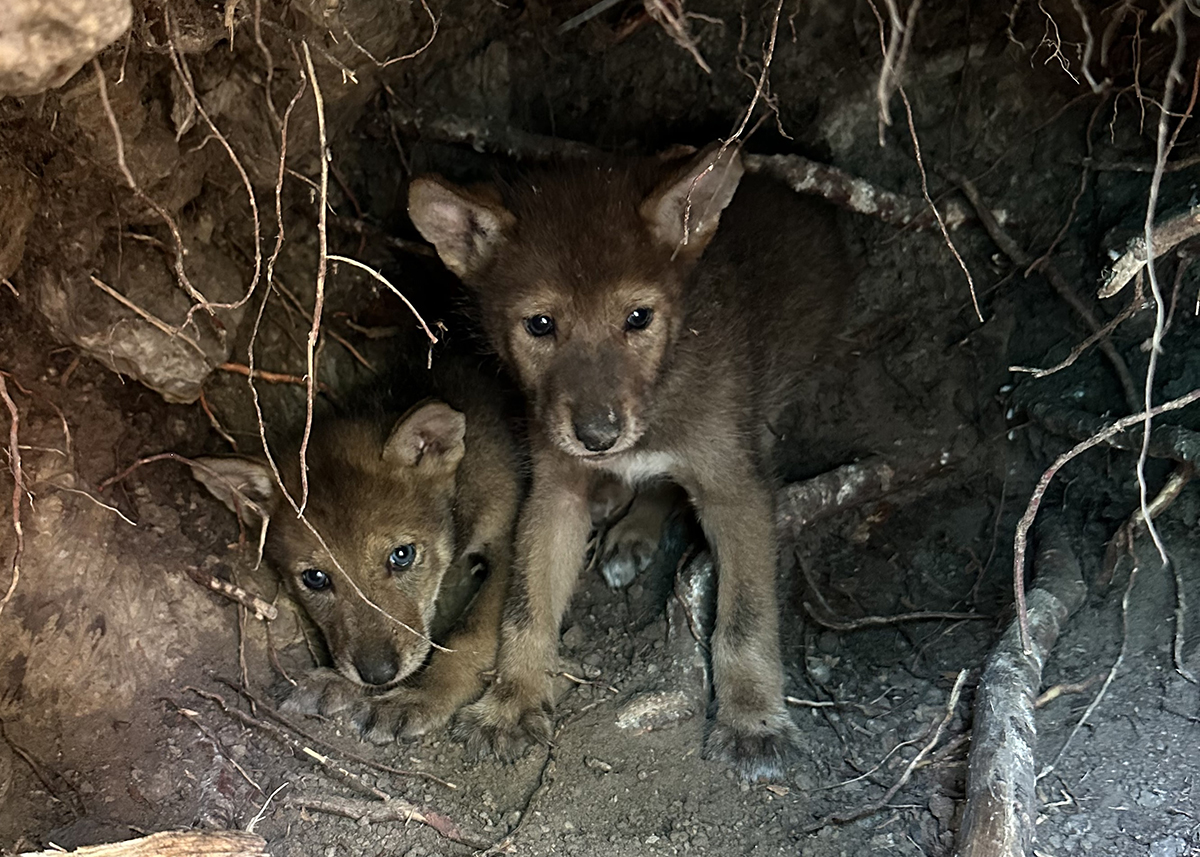
Biologists heartened by red wolf program’s recent successes
While still far from recovered, more endangered eastern red wolves in northeastern North Carolina are breeding, more pups are surviving, coyote hybridization has been cut, and there are fewer mortalities from vehicle strikes and gunshots.
News Briefs
-
Festival to highlight importance of fire in longleaf pine forests
The festival is a collaboration among organizations including The Nature Conservancy, N.C. Forest Service, Wilmington Recreation and Downtown Services, Halyburton Park, and North Carolina Coastal Land Trust to raise awareness about the importance of controlled burning and its relationship to longleaf pine forests.
-
Public may comment on revised Vanceboro quarry permit
N.C. Department of Environmental Quality’s Division of Water Resources is accepting public comments through Oct. 29 on the revised discharge permit for the Martin Marietta Material Inc. Vanceboro Quarry.
-
Citing unsafe conditions, state closes Colington Road access
Deterioration of a bulkhead and its surroundings at the Colington Road crabbing area creates hazards for pedestrians, the N.C. Department of Transportation said.
-
Weekly nature walks to highlight Bird Island history, wildlife
The Bird Island Stewards will begin hosting monthly guided nature walks on the Bird Island Coastal Reserve at Sunset Beach every Wednesday morning beginning Oct. 15.
-
State officials remind public to avoid discolored waters
North Carolinians are reminded to avoid coming into contact with discolored looking water in ponds, lakes and rivers because it could indicate the presence of an algal bloom.
Get the news of the North Carolina coast delivered daily.
Subscribe to Coastal Review
Special Report
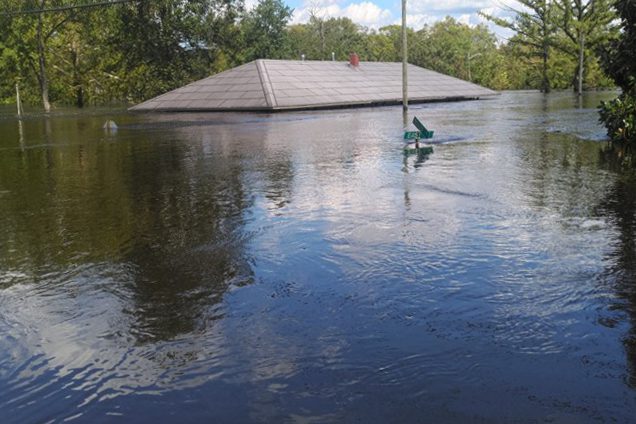
Federal Cuts, Coastal Effects
As the administration in Washington slashes funding and staffing and cancels programs under the guise of efficiency and cost-savings, the true costs are hitting hard here, leaving some local governments, institutions, nonprofits and residents underwater.
News & Features
-
Biologists heartened by red wolf program’s recent successes
While still far from recovered, more endangered eastern red wolves in northeastern North Carolina are breeding, more pups are surviving, coyote hybridization has been cut, and there are fewer mortalities from vehicle strikes and gunshots.
Science
-
Vast majority of litter removed from streams is plastic: Study
A three-year study recently published in the journal Community Science finds that about 96% of litter North Carolina waterkeeper organizations and their volunteers removed from trash traps were plastics.
Commentary
-
Coastal habitats are North Carolina’s hidden climate engines
North Carolina’s abundant coastal wetland ecosystems are highly effective carbon storehouses, serving to slow climate change’s pace while also providing vital fish nurseries, wildlife havens and storm buffers.
Our Coast
-
Coastal Federation lauds environmental stewards, volunteers
The North Carolina Coastal Federation celebrated 15 coastal stewards Saturday during the annual Pelican Awards ceremony for sharing “their time and talents, through leadership, education, hands-on projects, and volunteer efforts, to inspire others and create lasting change.”
-
Our Coast: On the James Adams Floating Theatre in 1940
Historian David Cecelski in this installment of his photo-essay series, “Working Lives: Photographs from Eastern North Carolina, 1937 to 1947,” goes behind-the-scenes at the James Adams Floating Theatre in 1940, when the vessel was docked on the Pamlico River in Washington.
-
Historic Whalehead Club to mark centennial in October
The centennial of the 21,000-square-foot art nouveau mansion and centerpiece of Historic Corolla Park will be commemorated in October with special tours and other ticketed events.
Featured Photo
-
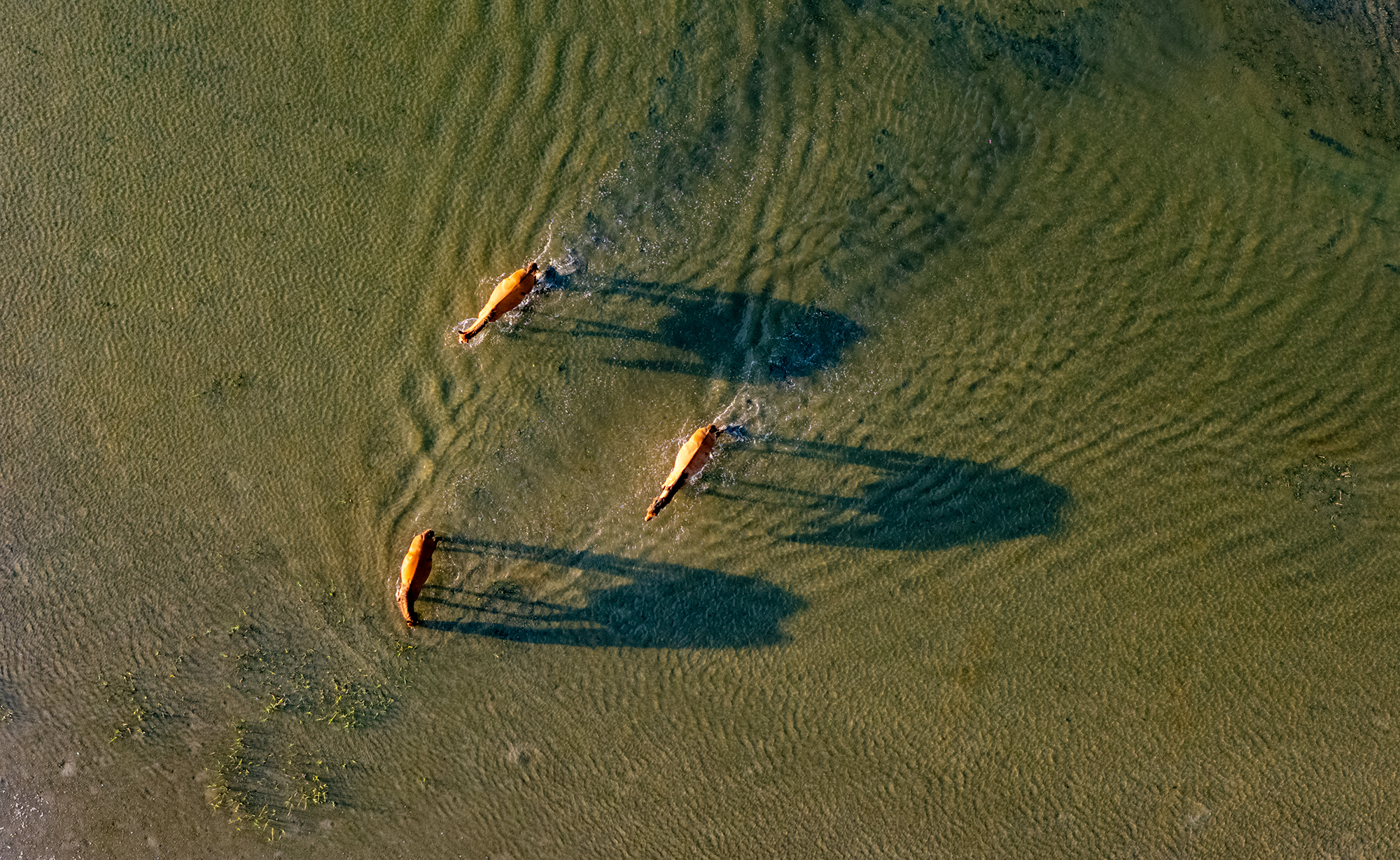
Wild herd, long shadows
Wild horses cross tidal waters from Town Marsh to Bird Shoal along Beaufort’s barrier islands, which are part of the Rachel Carson Reserve, in Carteret County. The cluster of islands includes Carrot Island, Town Marsh, Bird Shoal, and Horse Island, and the horses are descended from those brought to the islands by a Beaufort area resident in the 1940s, according to the North Carolina Department of Environmental Quality. The state manages the horse population for its health and for the health of the environment, but the herd is otherwise left to fend and forage for itself. Photo: Dylan Ray

